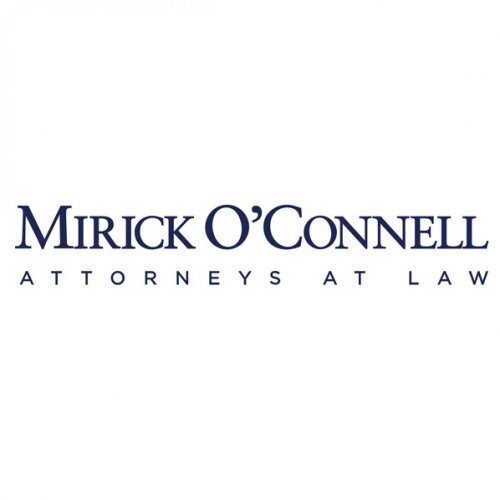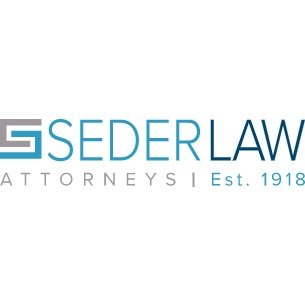Best Trademark Lawyers in Massachusetts
Share your needs with us, get contacted by law firms.
Free. Takes 2 min.
Or refine your search by selecting a city:
List of the best lawyers in Massachusetts, United States
About Trademark Law in Massachusetts, United States
Trademark law protects brand names, logos, slogans, and other identifiers that distinguish goods and services in the marketplace. In Massachusetts, trademark rights are governed both by federal law, such as the Lanham Act, and by state law under the Massachusetts General Laws. Registering a trademark provides exclusive rights to use that mark for specific goods or services, protecting business identity and preventing confusion or misuse by others. Both small businesses and large corporations use trademarks to safeguard their reputation and brand equity in Massachusetts.
Why You May Need a Lawyer
Trademark law can be complex, and several situations may require the help of a legal professional:
- Evaluating whether your desired trademark is available for use or registration
- Filing applications for trademark registration at the state or federal level
- Responding to office actions or refusals from trademark authorities
- Enforcing your trademark rights against alleged infringers
- Defending yourself if you are accused of infringing someone else's trademark
- Licensing or selling your trademark
- Handling disputes involving trademark ownership or use
- Developing strategies for protecting your brand locally, nationally, or internationally
Local Laws Overview
In Massachusetts, trademarks can be protected under both state and federal law. State registration is done through the Massachusetts Secretary of the Commonwealth. While federal registration with the United States Patent and Trademark Office (USPTO) offers broader protection, state registration can provide rights within Massachusetts, and may be more accessible or relevant for businesses primarily operating within the state.
Massachusetts General Laws Chapter 110H governs state trademark law. The law outlines the process for registration, duration and renewal of state trademarks, and remedies for infringement. Notably, infringement can result in legal actions, including injunctions and monetary damages. Massachusetts also recognizes common law trademark rights, meaning you gain some protection simply by using the mark in commerce, even if you have not registered it.
Business owners should also be aware of unfair competition and deceptive trade practices statutes in Massachusetts, as these can play a role in trademark disputes.
Frequently Asked Questions
What is a trademark?
A trademark is any word, phrase, symbol, design, or combination that identifies and distinguishes the source of goods or services.
What is the difference between a state and a federal trademark?
A state trademark registered in Massachusetts protects your mark only within the state's borders, while a federal trademark registered with the USPTO provides nationwide protection.
Do I have to register my trademark?
Registration is not mandatory, but it offers many benefits including stronger legal protection, public notice of ownership, and the ability to sue for infringement. Unregistered marks are still protected by common law rights in Massachusetts.
How do I register a trademark in Massachusetts?
You can register a trademark in Massachusetts by filing an application with the Secretary of the Commonwealth, providing details about the mark and its use in commerce, and paying the filing fee.
How long does a Massachusetts trademark registration last?
A state trademark registration in Massachusetts is valid for ten years and can be renewed for subsequent ten-year periods.
Can I use the "TM" or "R" symbols in Massachusetts?
You can use "TM" for goods or "SM" for services to indicate an unregistered trademark or service mark. The "R" symbol indicates a federally registered trademark and should only be used after successful federal registration.
What should I do if someone is infringing my trademark in Massachusetts?
You may send a cease and desist letter, negotiate a settlement, or pursue legal action for injunctions and damages. A trademark lawyer can advise on the best steps to protect your rights.
What is the process if I am accused of trademark infringement in Massachusetts?
If you are accused of infringement, you should seek legal counsel immediately. A lawyer can review the claim, represent you in negotiations, and defend you in court if necessary.
Can I license or sell my trademark?
Yes, trademarks can be licensed or sold (assigned) in Massachusetts. Proper legal documentation is important to ensure the transfer or license is valid and enforceable.
What if my trademark is also protected by federal law?
Federal registration takes precedence and offers broader rights, but state rights may still be significant, especially for local businesses. Legal strategy may involve both state and federal considerations.
Additional Resources
Several organizations and government offices can assist with trademark matters in Massachusetts:
- Massachusetts Secretary of the Commonwealth - Corporations Division (for state trademark registration and renewals)
- United States Patent and Trademark Office (USPTO) (for federal trademark registration, guidance, and search tools)
- Massachusetts Bar Association and local bar associations (for finding experienced trademark attorneys)
- Small Business Administration (SBA) Massachusetts District Office (for small business counseling)
- Volunteer Lawyers for the Arts Massachusetts (for creative professionals and artists)
Next Steps
If you are considering trademark registration or facing a trademark dispute in Massachusetts, here are recommended steps:
- Conduct a trademark search to ensure your desired mark is available
- Determine if state or federal registration is most appropriate for your business
- Prepare the necessary documentation, including samples of your mark and information about its use
- Consult with a Massachusetts trademark attorney for legal advice, strategy, and application filing assistance
- Respond promptly to any legal correspondence concerning your trademark rights
- Continue to monitor and enforce your trademark to protect your business interests
Lawzana helps you find the best lawyers and law firms in Massachusetts through a curated and pre-screened list of qualified legal professionals. Our platform offers rankings and detailed profiles of attorneys and law firms, allowing you to compare based on practice areas, including Trademark, experience, and client feedback.
Each profile includes a description of the firm's areas of practice, client reviews, team members and partners, year of establishment, spoken languages, office locations, contact information, social media presence, and any published articles or resources. Most firms on our platform speak English and are experienced in both local and international legal matters.
Get a quote from top-rated law firms in Massachusetts, United States — quickly, securely, and without unnecessary hassle.
Disclaimer:
The information provided on this page is for general informational purposes only and does not constitute legal advice. While we strive to ensure the accuracy and relevance of the content, legal information may change over time, and interpretations of the law can vary. You should always consult with a qualified legal professional for advice specific to your situation.
We disclaim all liability for actions taken or not taken based on the content of this page. If you believe any information is incorrect or outdated, please contact us, and we will review and update it where appropriate.
Browse trademark law firms by city in Massachusetts
Refine your search by selecting a city.










